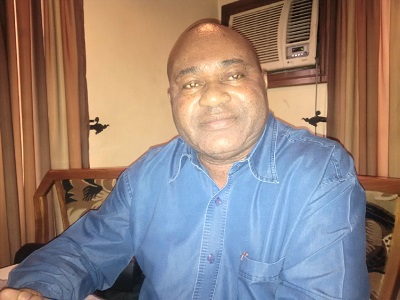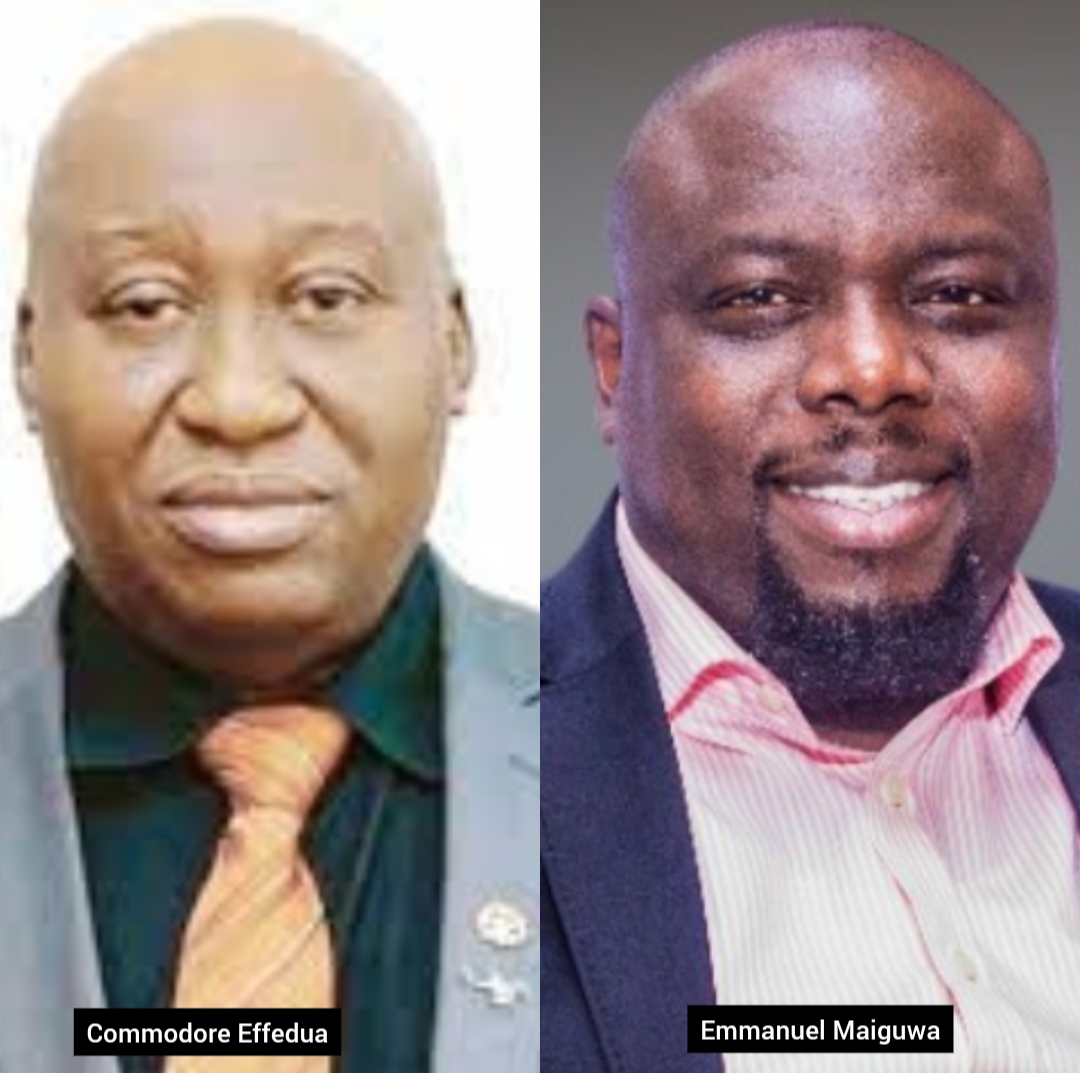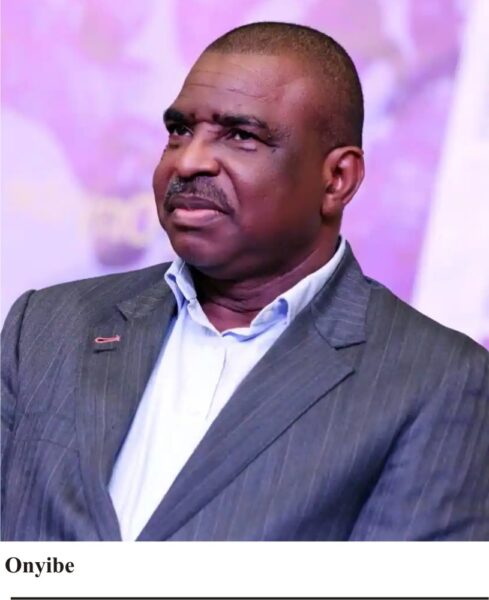AfCFTA: Nigeria Can Become Supplier Of Transport Professionals – Dakuku

By Kenneth Jukpor
Dr. Dakuku Peterside is the Director General, Nigerian Maritime Administration and Safety Agency (NIMASA). He was a guest at the National Transport Summit organized by the Chartered Institute of Transport Administration (CIoTA) in Abuja, last week and he spoke with MMS Plus to address pertinent maritime issues. Dakuku also set an advocacy agenda for CIoTA.
Excerpts:
Post IMO Elections. Before the elections there were discussions about several strategies but Nigeria lost again. Would the nation be ready and willing to contest again in the next two years and what didn’t we do right?
The decision to run for the IMO Council or not is made by the President and the Federal Executive Council (FEC). If you want to put yourself in position to contest the election, you apply to Mr. President who would consult relevant agencies. This is beacuse it is the country that contests the election and not NIMASA or the Ministry of Transportation. The decision as to whether we would contest or not would be made by the President of the country.
The other angle to your question is that we lost the election by one vote, what went wrong? The election of any country is a function of international politics. It is not a function of IMO or as a result of what the administration of the country does or didn’t do.
Liberia has been at the IMO Council for a long time but Liberia doesn’t have a strong maritime administration. Kenya doesn’t have a better maritime administration than Nigeria. I’m proud to say that in Africa, Nigeria is the maritime administration you can reckon with. You may argue that Liberia has the largest tonnage in Africa, but Liberia has an open registry. This means that most of the vessels in their registry aren’t owned by Liberians. Nigeria owns the highest tonnage and this is verifiable in the continent of Africa. Nigeria is ahead of South Africa, Egypt and all other African nations. In every area of maritime administration we are ahead of most countries, if not all African countries. I don’t believe that winning election into IMO Council is a function of what the maritime administration does. It is simply a function of international politics.
I can cite a few examples of this international politics at IMO. Qatar put itself forward to run for this election, however, they discovered that other nations within their region had come together to vote against them. They also discovered that Europe had agreed to vote against them, so they pulled out of the elections. The issue wasn’t what Qatar did right or wrong, but politics. The loss of the election isn’t a factor of what NIMASA did wrong or right. This explains my point which is that winning an election in an international organization is simply a function of politics which depends on a number of factors.
Can you give us an insight to how NIMASA would work with the newly established Transport University and other transport agencies and modes of transportation?
Transportation is a sector with different modes, hence different members of the sector. There is a relationship between one mode of transportation and the other and the world is promoting connectivity or what is called intermodalism. This means that no mode of transportation on its own is self-sufficient. Every mode of transportation would need to work with the other to achieve the ultimate goal to maximize efficiency. NIMASA is in sync with the intermodalism being promoted by the country.
For the Transportation University in Daura, it was established as an initiative of the Federal Ministry of Transportation and China Civil Engineering Construction Corporation (CCECC). The primary aim is for the sustainability of the railway projects the nation is doing. This would be very crucial for the training of manpower for the railway and other modes of transportation because it is a holistic Transportation University. The nation must take advantage of every opportunity to build capacity.
We have the Nigerian Maritime University, Okerenkoko, which is devoted to maritime education but it also does transport administration. As a country with over 200 million people, Nigeria can’t have enough universities to build capacity. We do need more. We also have the Nigerian Institute of Transport Technology (NITT) Zaria. NIMASA would work with all these tertiary institutions to build capacity because the nation needs to have comparative advantage in this area of manpower because we have a huge population of young and intelligent people. Philippines supply over 500,000 seafarers to the world. Nigeria should be able to supply transport professionals to the whole of Africa, taking advantage of the African Continental Free Trade Agreement (AfCFTA) and proceed to supply the whole world.
The transportation sector is key to economic development. What should the country do differently to harness this sector and are there policy changes you would proffer?
I belive the country is already in the right direction as we are developing two important documents. One is the National Transport Policy and the other is the National Transport Masterplan. The National Transport Policy pours out the nation’s aspirations as to where it wants to go in the future and the policy interventions that would have to be done to ensure the nation gets to that place. The policy would also highlight the roles of the different actors such as the regulators, agencies, etc.
However, the National Transport Masterplan speaks to our long-term, medium-term and short term goals. It identifies the responsibility and the investments to be made. It also identifies the necessary partnerships and skills to be harnessed to get to the ultimate destination and make transportation serve as catalyst for the country’s economic growth.
In addition, from the maritime sector we are developing something called Maritime Nigeria 2040. This is the maritime transport masterplan to show where we want to be in 2040, how we intend to get there, the roles of the different parties and the requisite investments and skills. The challenge we have had all along has been lack of consistency. We need to invest in infrastructure and human capacity development. It is not enough to define our aspirations or vision of where we want to be, let’s make the necessary investments in terms of funding, building infrastructure and human capacity development. In the recent past we have not made the right investment and sufficient investments.
CIOTA’s key focus is advocacy. What would you advise the Institute to look at in the transport sector?
One of the important areas is to improve the training standards of those who administer transportation. Before now, there was no agency saddled with the responsibility of regulating the standard of knowledge required of them. There was nobody empowered by law to regulate the standard of knowledge in the transport sector. Today, CIoTA is the institute empowered by law to regulate the standard of knowledge in the sector. CIoTA must establish minimal knowledge level of transport professionals and administrations.
Things are changing at a rapid rate as a result of technological development. CIoTA must be central to the research to get Nigerians up to date with transport innovation and administration.
Nigeria must move in the direction that the world is taking. CIoTA should be at the forefront of technological changes that would see transportation make minimal negative impact on the environment. CIoTA owes Nigerians the responsibility of protecting the interest of those who use transport services.
A tanker vessel was hijacked recently and we learnt that nineteen people were kidnapped. What is the situation at the moment?
We just woke up one morning to get the news that a tanker vessel named ‘Nave Constellation’ had been attacked. It was attacked and not hijacked. It was attacked off the coast of Bonny. Nineteen persons were alleged to have been picked up onboard leaving nine crew members remaining onboard the vessel. The operators of the vessel made contact with NIMASA and the Nigerian Navy and we immediately went to work to find out what happened.
For ten days, the vessel had been within our territorial waters yet it didn’t establish contact with the Harbour Masters. It also didn’t establish contact with the authorities in Nigeria. However, that isn’t an issue because life is more precious than any other consideration. We also immediately contacted the Naval unit around that area and they have gone to work. The Navy has established contact with the remaining crew members onboard the vessel. The nine persons onboard the vessel are safe and the vessel is safe.
We have also contacted some authorities in India and we have established contact with a number of industry groups at the international level. Since this is a security issue we can’t disclose all the details; however I can assure you that we are doing everything possible to rescue those kidnapped crew members. It is very unfortunate and we are sad that this is happening at a time we are putting a lot of effort to make Nigerian waterways safe.
I think this would ultimately serve as catalyst for us to fasttrack what we are doing to safeguard our waterways so that commerce can thrive again and people can do economic activities without fear or hindrance. Be rest assured that we are on top this issue. For us, there is no greater priority than this. The hijackers haven’t established any contact with anyone up till this moment.







